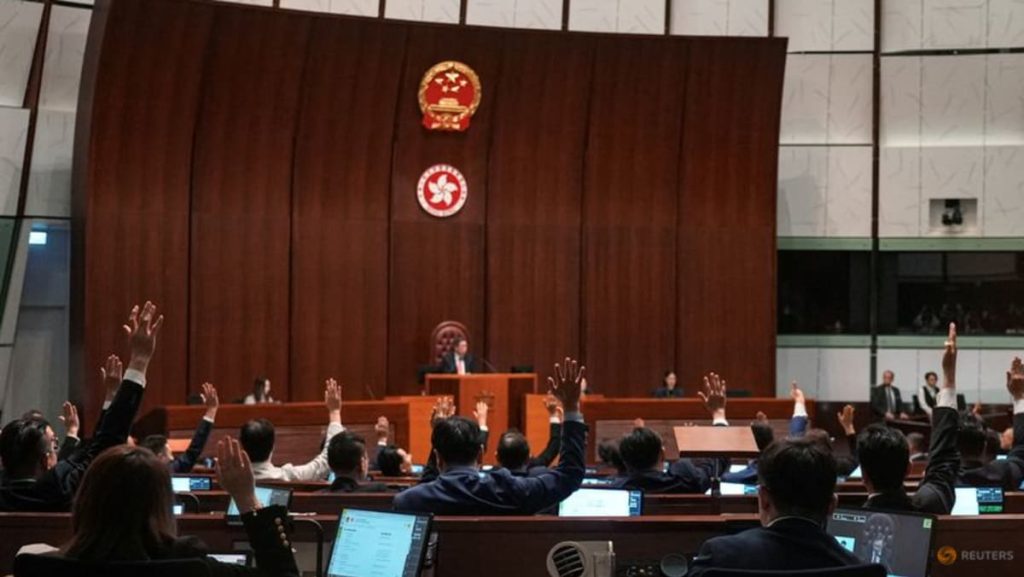HONG KONG: A new national security law came into force in Hong Kong on Saturday (Mar 23) despite growing international criticism that it could erode freedoms in the city, which is ruled by China but has some autonomy stemming from its history as a British colony.
The law took effect at midnight when it was published on a government website, days after Hong Kong’s pro-Beijing lawmakers passed it unanimously, fast-tracking legislation to plug what authorities called national security loopholes.
Hong Kong Chief Executive John Lee signed the new national security law on Friday evening, saying it “accomplished a historic mission, living up to the trust placed in us by the Central (Chinese) Authorities”.
Australia and Britain on Friday criticised China for its actions in Hong Kong after a meeting in Adelaide, noting in a joint statement “deep concerns about the continuing systemic erosion of autonomy, freedoms and rights”.
Australia and Taiwan updated their travel advisories for Hong Kong, urging citizens to exercise caution.
“You could break the laws without intending to and be detained without charge and denied access to a lawyer,” the Australian government said.
Hong Kong authorities, however, in a statement, “strongly condemned such political manoeuvres with skewed, fact-twisting, scaremongering and panic-spreading remarks”.
Hong Kong returned to Chinese rule in 1997 with the guarantee that its high degree of autonomy and freedoms, including freedom of speech and assembly, would be protected under a “one country, two systems” formula.
The United Nations and the European Union criticised the extremely swift passage of the law, which was first tabled as a draft bill in early March.
“It is alarming that such consequential legislation was rushed through the legislature through an accelerated process, in spite of serious concerns raised about the incompatibility of many of its provisions with international human rights law,” the UN High Commissioner for Human Rights said earlier.
US Secretary of State Antony Blinken said the law would have “broad implications” for American citizens and companies in Hong Kong.
“We share concerns expressed by other nations that Hong Kong authorities could seek to apply the new legislation extraterritorially in their ongoing campaign of transnational repression, and condemn efforts to intimidate, harass, and limit the free speech of US citizens and residents,” he said in a statement.


